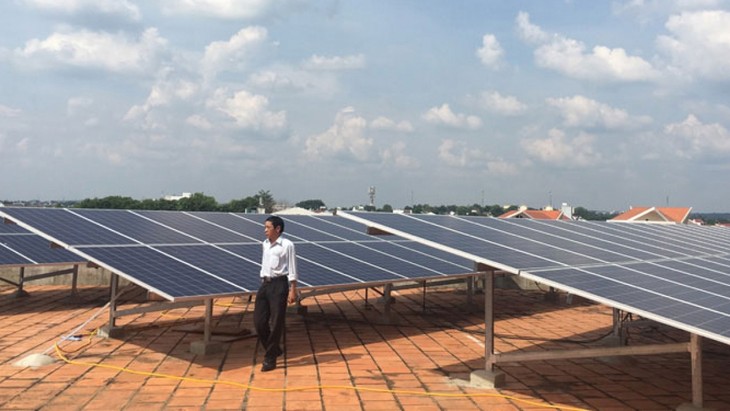(VOVWORLD) - Ensuring energy security has been identified as the ultimate goal of Vietnam’s national energy development strategy. Energy security is the foundation and prerequisite for national socio-economic development.
 (Photo: VOV) (Photo: VOV) |
Since 2015 Vietnam has become an energy importing country. The reasons are exhaustion of primary sources for hydropower generation, obstacles to exploring new oil fields in the East Sea, inefficient coal use due to backward technology, and slow construction or cancellation of power projects.
Nguyen Tuan Anh, Deputy Director of the Electricity and Renewable Energy Department of the Ministry of Industry and Trade, talked about Vietnam’s measures to ensure energy security: “The government has issued development policies focusing on renewable energy, energy efficiency, energy markets, and climate change. The national strategy on renewable energy aims to increase the proportion of renewable energy to 32% by 2030, and to approximately 43% by 2050.”
Countries and organizations use different methods to assess energy security, depending on local conditions. Developing economies like Vietnam need to shift to renewable energy.
Nguyen Duc Hien, Vice Chairman of the Party Central Committee’s Economic Commission, said: “We need to shift to renewable energy, maintain a national energy reserve, and restructure energy use toward greater energy efficiency and conservation. The power grid should be modernized and decentralized to develop a competitive electricity market.”
The Vietnamese government has issued a Resolution on 17 Sustainable Development Goals until 2030, including one on energy security. It defines a general target of ensuring national energy security and a stable high-quality power supply at a reasonable price.